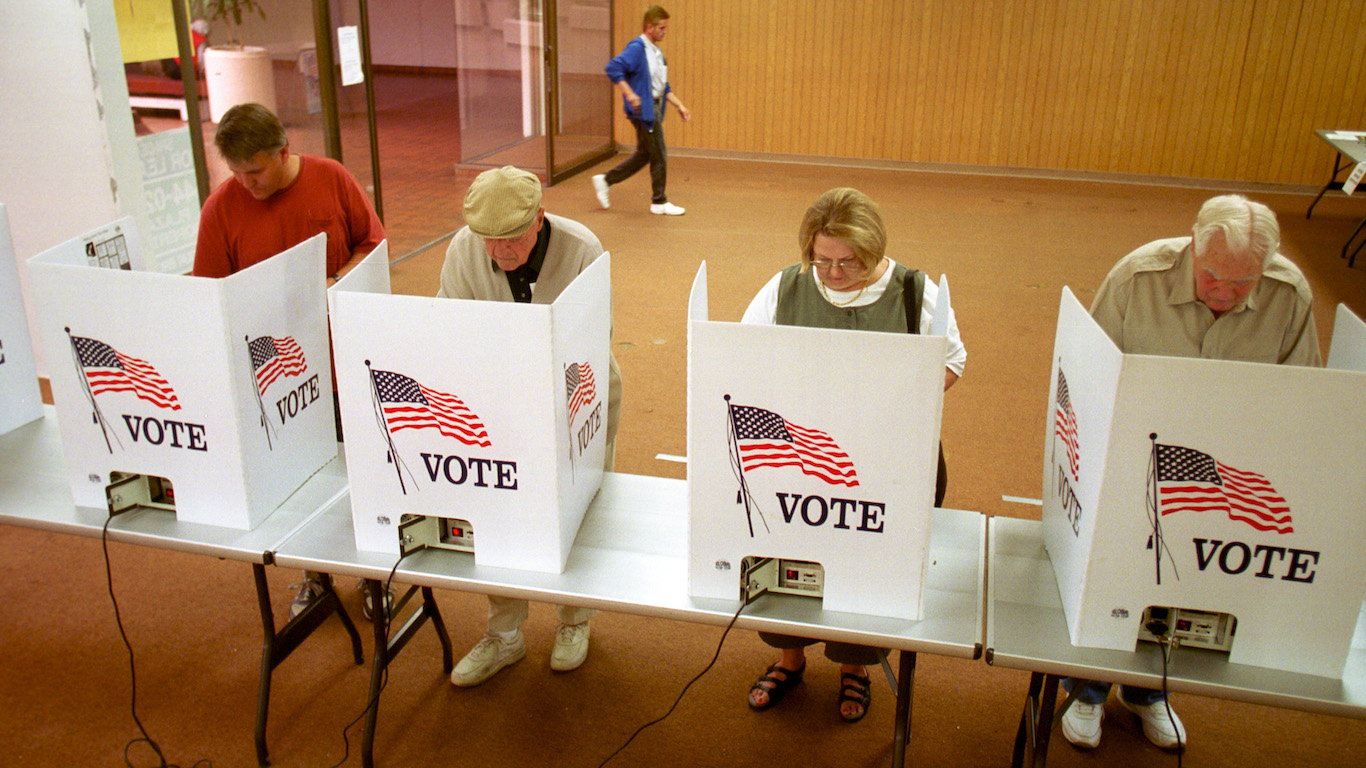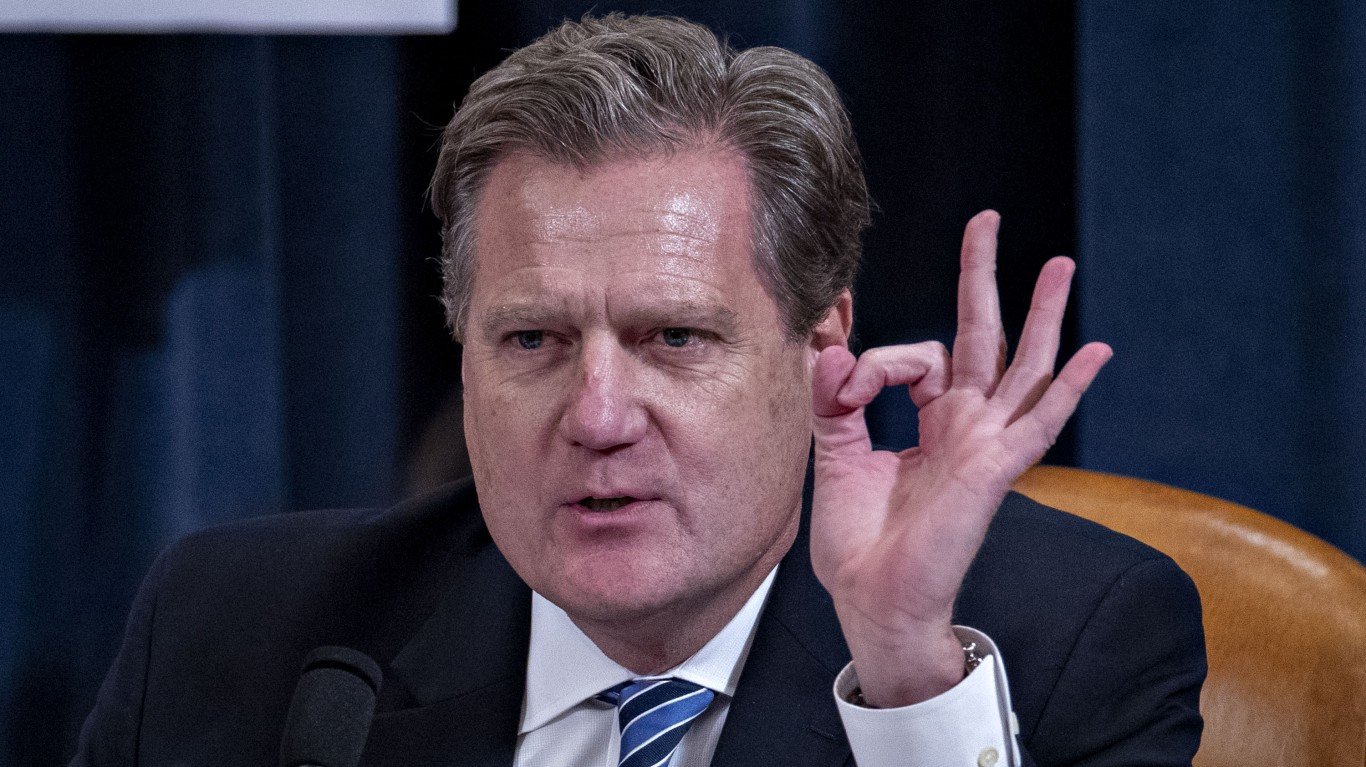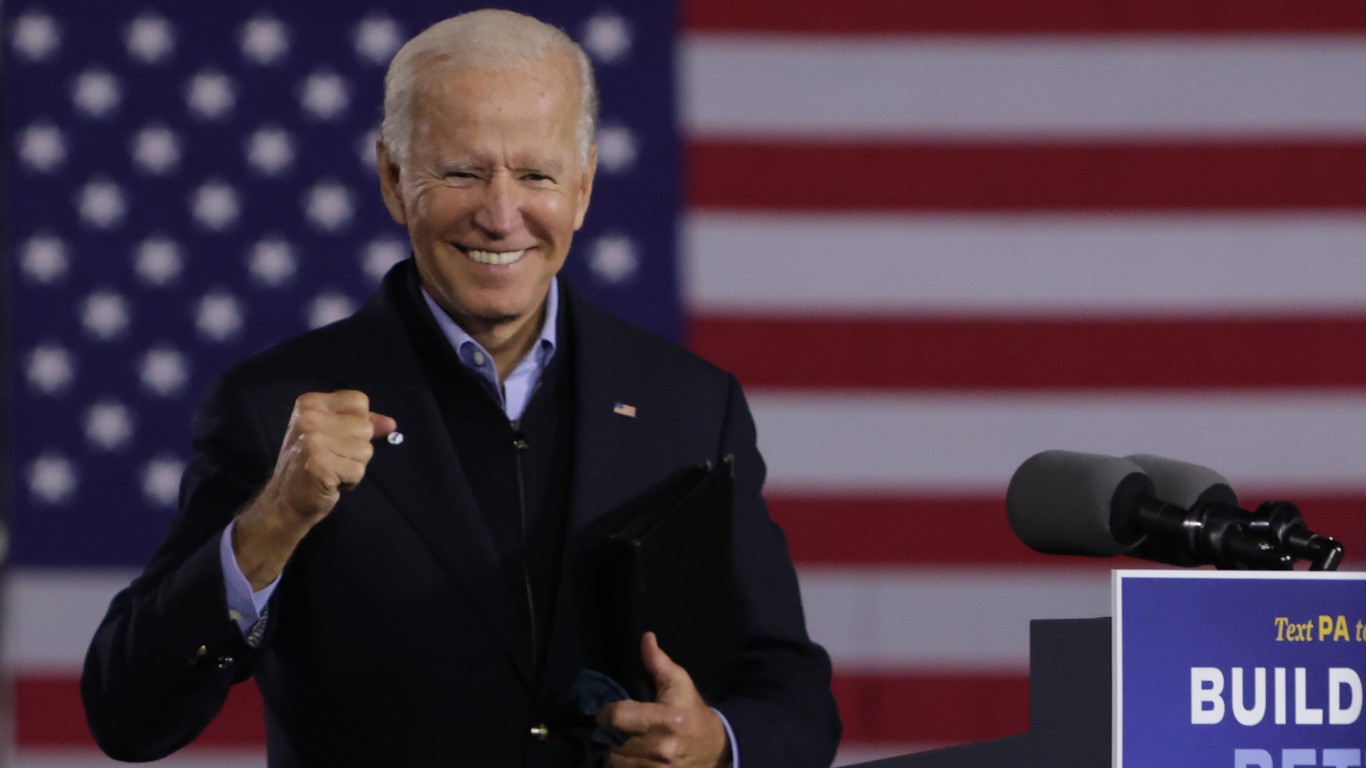

Some critics have blamed unjust and unregulated profiteering by multinational corporations – especially energy companies and food producers and sellers – for the recent alarming increase in the cost of living, which leaders have also been unable to stop. (click here to see the 9 world leaders who have the power to destroy life on Earth.)
Whether or not world leaders could have prevented inflation, many today face high disapproval ratings. In fact, 18 of the world’s democratically elected leaders, who preside over 1.12 billion people, have disapproval ratings of between 48% and 75%. Fourteen of these leaders also have negative net approval – the percentage-point spread between those who approve and those who do not – from -1 to -57 points.
To identify the most disliked leaders in the world, 24/7 Wall St. reviewed the recent weekly survey on global leader approval ratings from polling organization Morning Consult, which collects survey data in 22 countries. Data was collected from Oct. 19-25, 2022. Only the 14 leaders with negative net approval ratings are ranked here (net approval was rounded to the nearest point).
Among these 18 disliked elected leaders, 13 have negative net approval spreads in the double digits, including U.S. President Joe Biden, German Chancellor Olaf Scholz, and South Korean President Yoon Suk-yeol. (Here is the final approval rating of every president since Harry Truman.)
New U.K. Prime Minister Rishi Sunak has a narrow 2-point negative net approval, an improvement from his time as head of the country’s treasury, when his net approval hit a career low in April of negative 18 points in an Ipsos poll. If Brits do not see an improvement at the kitchen table soon, Sunak’s net approval spread will undoubtedly widen.
Here are the world’s most disliked leaders in the world.
Click here to read our detailed methodology.
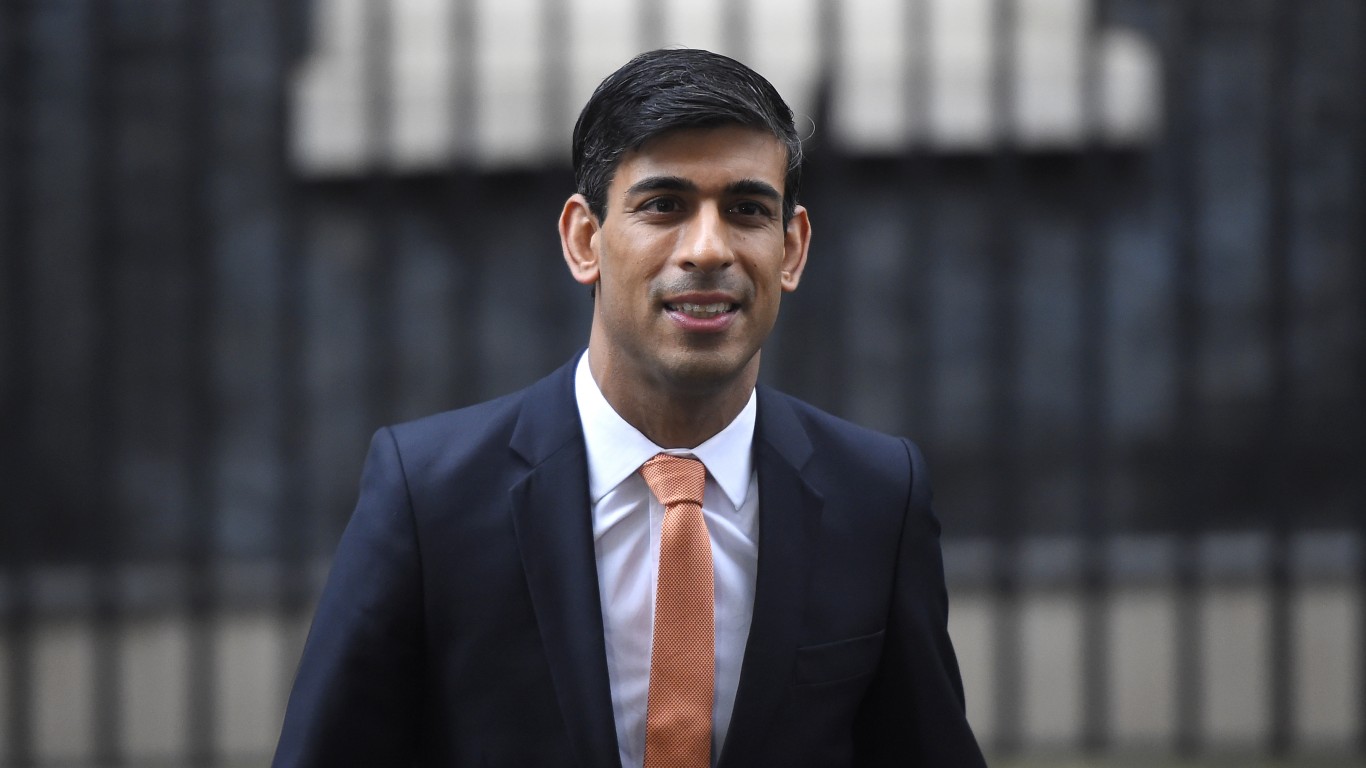
14. Rishi Sunak
> Country: United Kingdom
> Net approval: -2%
> Approve: 35%
> Disapprove: 37%
> Population: 67,326,569
Conservative Party member Rishi Sunak, 42, was the U.K.’s chancellor of the exchequer before winning enough support from the House of Commons to become prime minister on Oct. 25, replacing Mary Elizabeth Truss who resigned after only 50 days in office amid a credibility crisis. Before assuming his new role, Sunak’s net favorability rating fell to negative 18 points in an April IPsos poll, his lowest approval rating since becoming chancellor because of widespread negative perceptions about the state of the country.
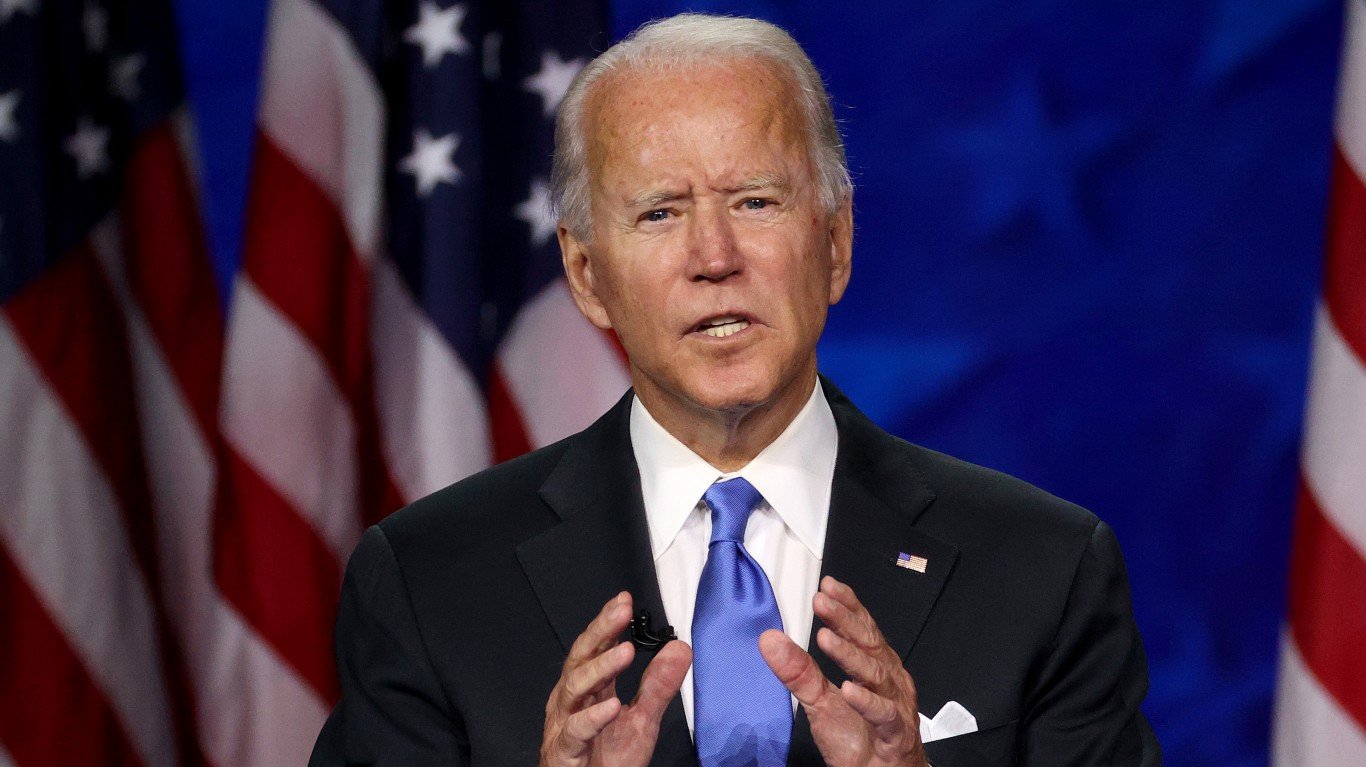
13. Joe Biden
> Country: United States
> Net approval: -11%
> Approve: 42%
> Disapprove: 52%
> Population: 331,893,745
U.S. President Joe Biden’s approval rating fell to 39% in a Reuters-Ipsos poll conducted in mid-October and released a day before the Nov. 8 midterm elections. Poll respondents cited the economy as the biggest problem facing the country. Biden, 79, served as U.S. senator for 36 years before becoming President Barack Obama’s vice president and defeating incumbent President Donald Trump by 7 million popular votes and 74 electoral votes in the 2020 presidential election.
[in-text-ad-2]
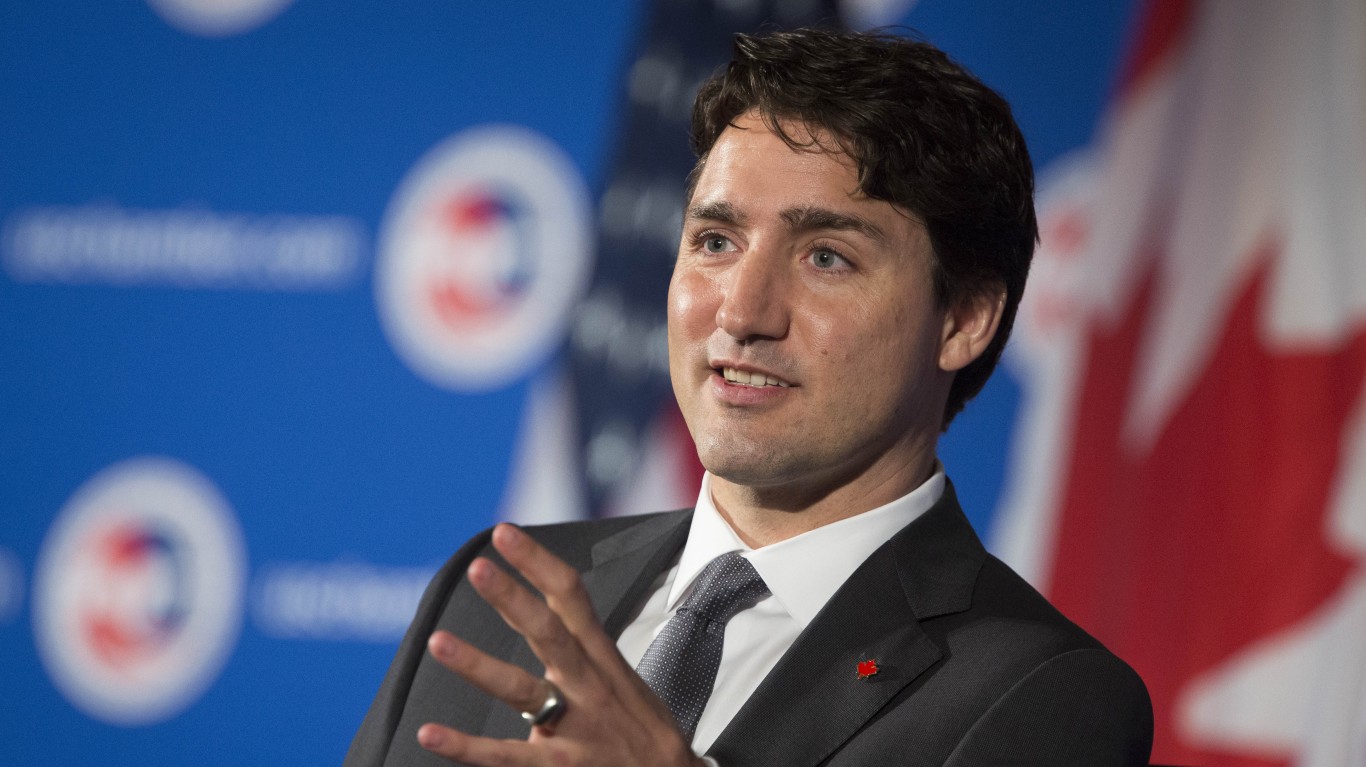
12. Justin Trudeau
> Country: Canada
> Net approval: -12%
> Approve: 40%
> Disapprove: 53%
> Population: 38,246,108
A national poll from Abacus Data in July found that only a third of Canadians believe their country is headed in the right direction, and 51% of respondents said they disapproved of Prime Minister Justin Trudeau’s performance, the highest score since he took office in November 2015. Trudeau, 50, is a member of the Liberal Party and has maintained his position as prime minister through two federal election cycles, in 2019 and 2021.
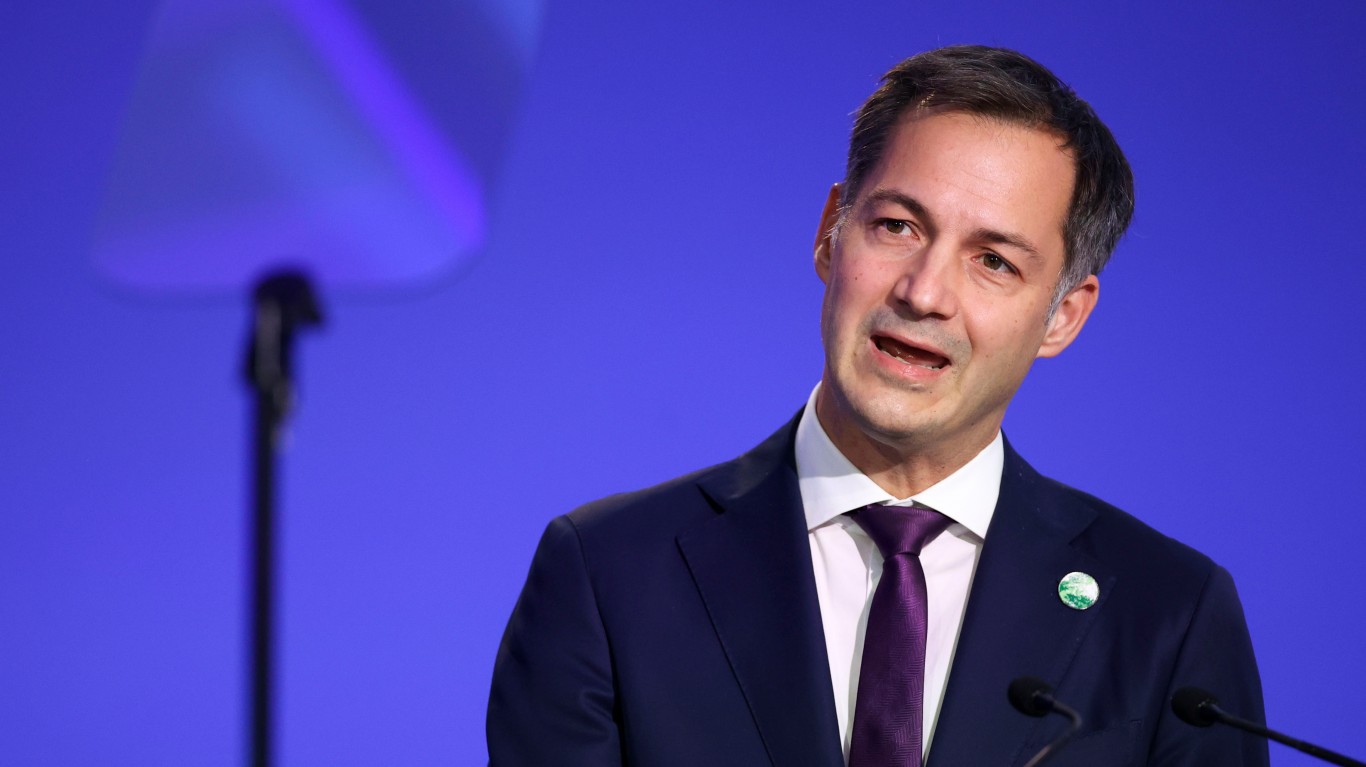
11. Alexander De Croo
> Country: Belgium
> Net approval: -14%
> Approve: 36%
> Disapprove: 49%
> Population: 11,587,882
Belgium Prime Minister Alexander De Croo, 47, took office in October 2020 after an agreement among seven parties ended 16 months without a fully functional government. The struggles to form a federal government underscore a divide among Belgians. De Croo, a member of the center-right Open Flemish Liberals and Democrats party, served as Belgium’s deputy prime minister from 2012.
[in-text-ad]
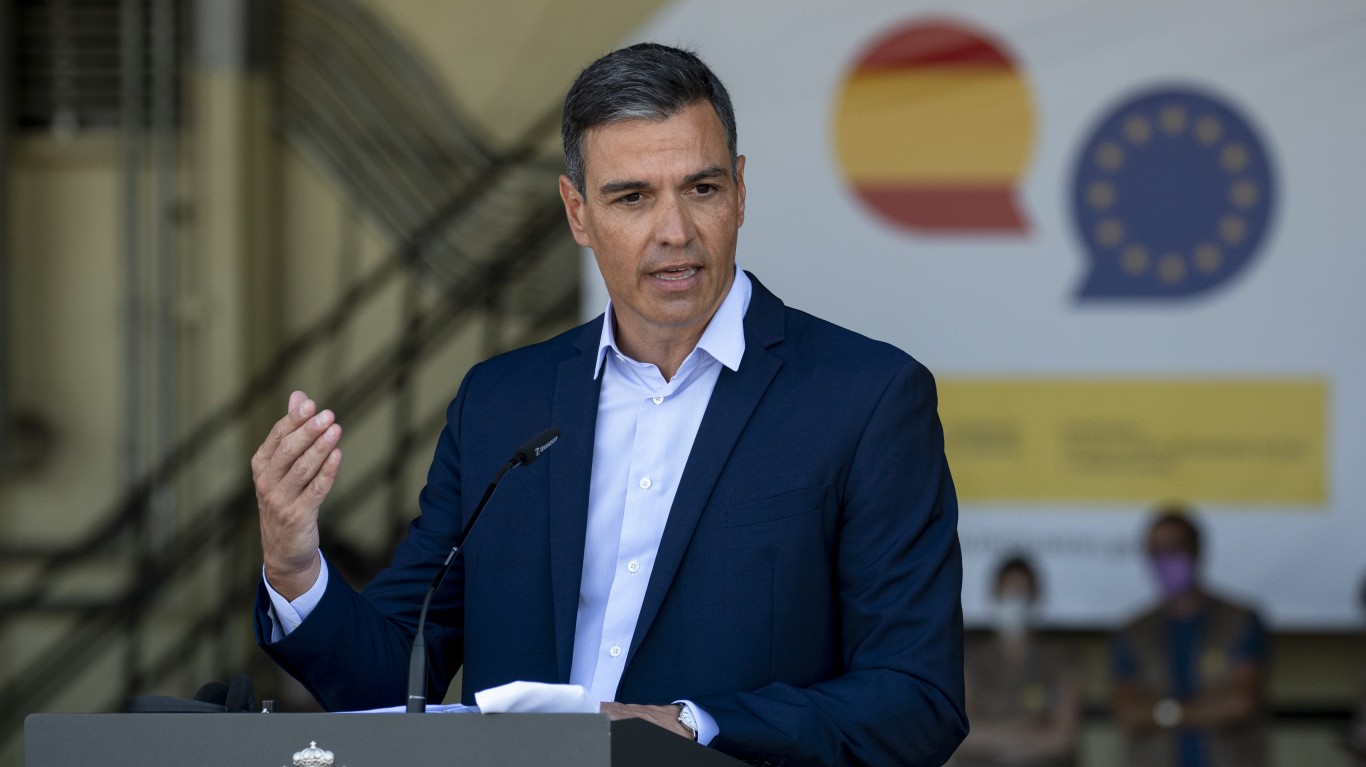
10. Pedro Sánchez
> Country: Spain
> Net approval: -23%
> Approve: 35%
> Disapprove: 58%
> Population: 47,326,687
Ahead of next year’s general elections in Spain, leftist Prime Minister Pedro Sánchez is facing anger and frustration over rising prices. Spain recorded a 7.3% increase in consumer prices in the 12 months ending in October, down from a 10.5% increase in August. Sánchez, a member of the Spanish Socialist Worker’ Party, became prime minister In June 2018, when the annualized inflation rate in Spain was just 2.25%.
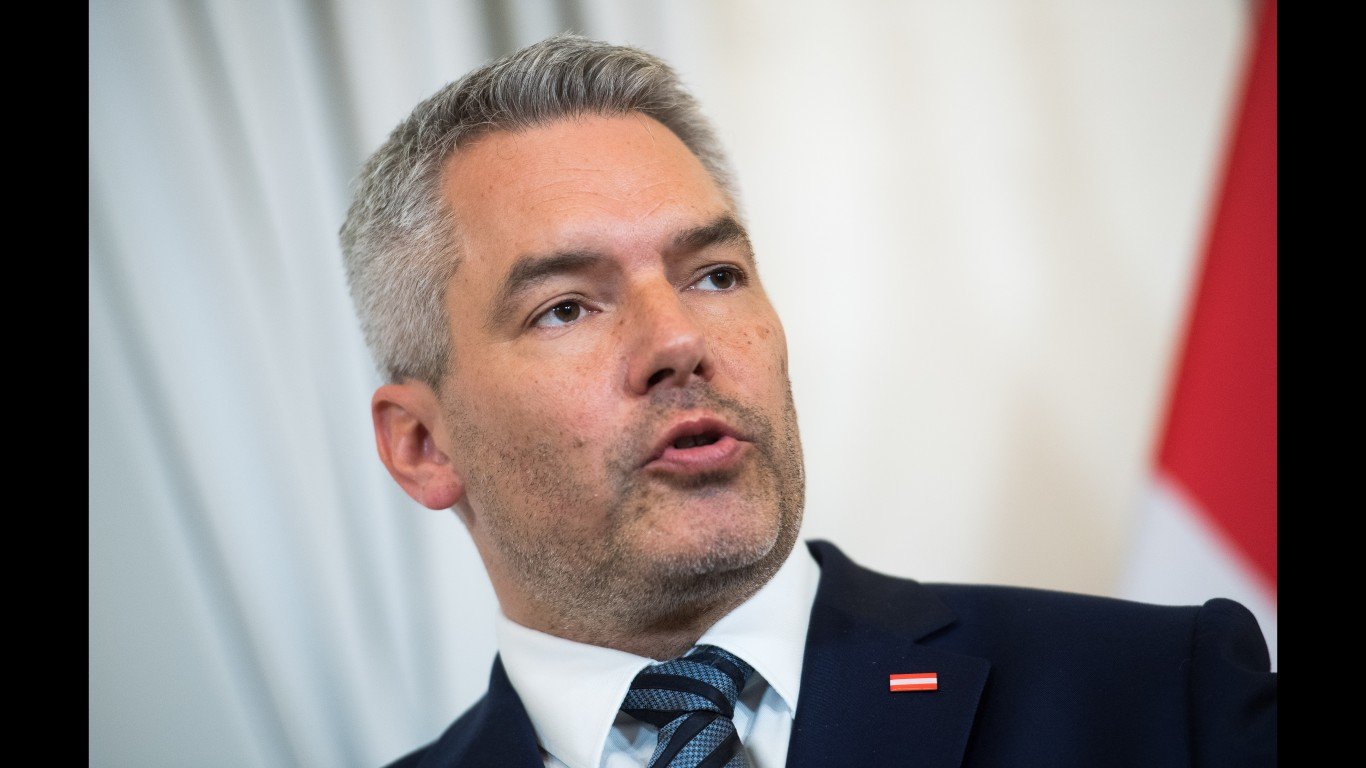
9. Karl Nehammer
> Country: Austria
> Net approval: -33%
> Approve: 29%
> Disapprove: 61%
> Population: 8,956,279
Chancellor Karl Nehammer, 50, is trying to distance himself from a political crisis related to an ongoing corruption probe into his conservative Austria People’s Party (ÖVP). The scandal involves former Chancellor Sebastian Kurz and others amid allegations they spent public funds to manipulate polls in favor of the ÖVP. Nehammer became chancellor of Austria in December 2021 following the resignation of Kurz.

8. Emmanuel Macron
> Country: France
> Net approval: -33%
> Approve: 30%
> Disapprove: 64%
> Population: 67,499,343
Despite French President Emmanuel Macron’s dismal approval rating, he defeated right-wing hardliner Marine Le Pen in the recent election. Macron, 44, a member of the centrist Renaissance Party, assumed office in May 2017 after defeating Le Pen, 54, of the far-right National Rally Party by a margin of 66.1% compared to 33.9%. Macron’s victory this past April was much narrower, however, at 58.5% to 41.5%.
[in-text-ad-2]
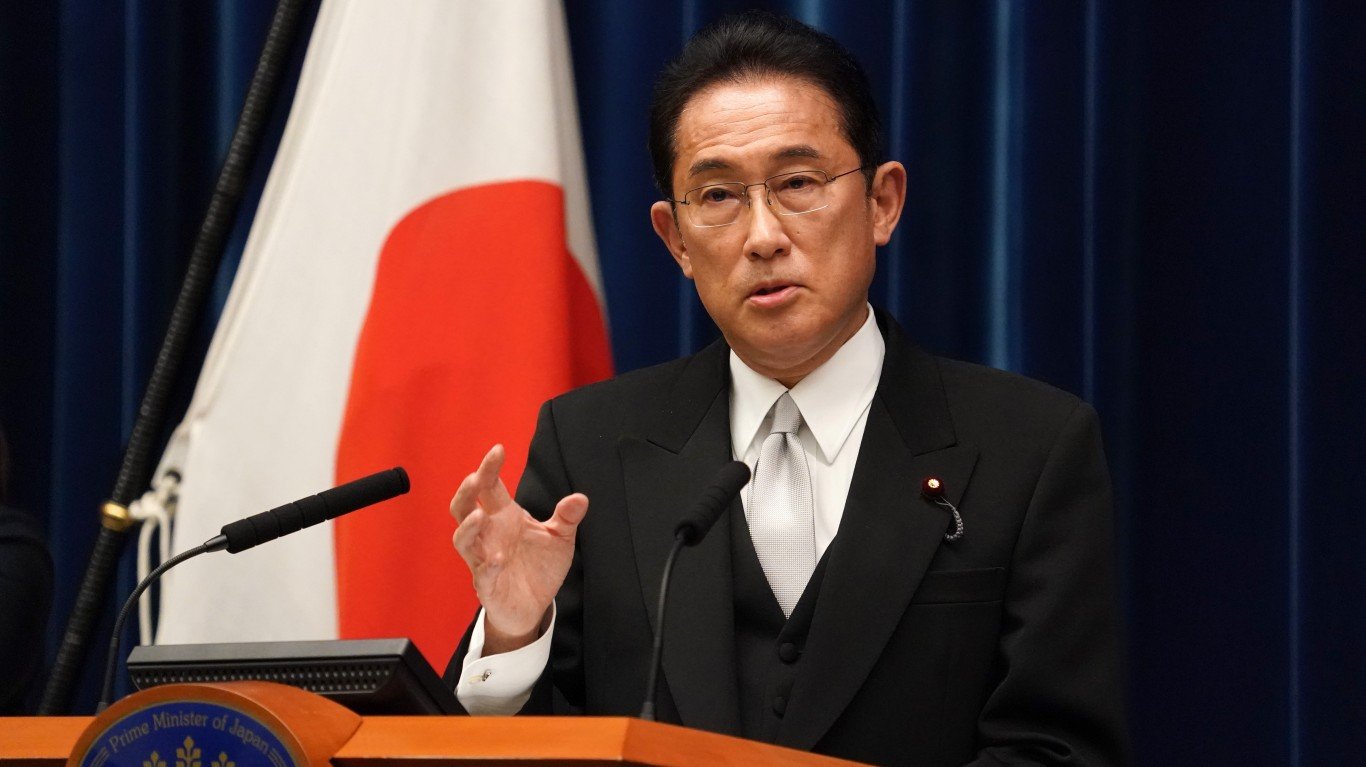
7. Fumio Kishida
> Country: Japan
> Net approval: -37%
> Approve: 25%
> Disapprove: 62%
> Population: 125,681,593
In October, the approval rating of the cabinet of Japanese Prime Minister Fumio Kishida fell by nearly 5 points, below 30% for the first time since Kishida, 65, assumed office in October 2021 after winning in a runoff election. The low approval rating reflects public anger over rising prices and the relationship between Kishida’s Liberal Democratic Party lawmakers and the controversial Unification Church, the South Korean Christian group founded by the late Rev. Sun Myung Moon, the late self-proclaimed messiah.
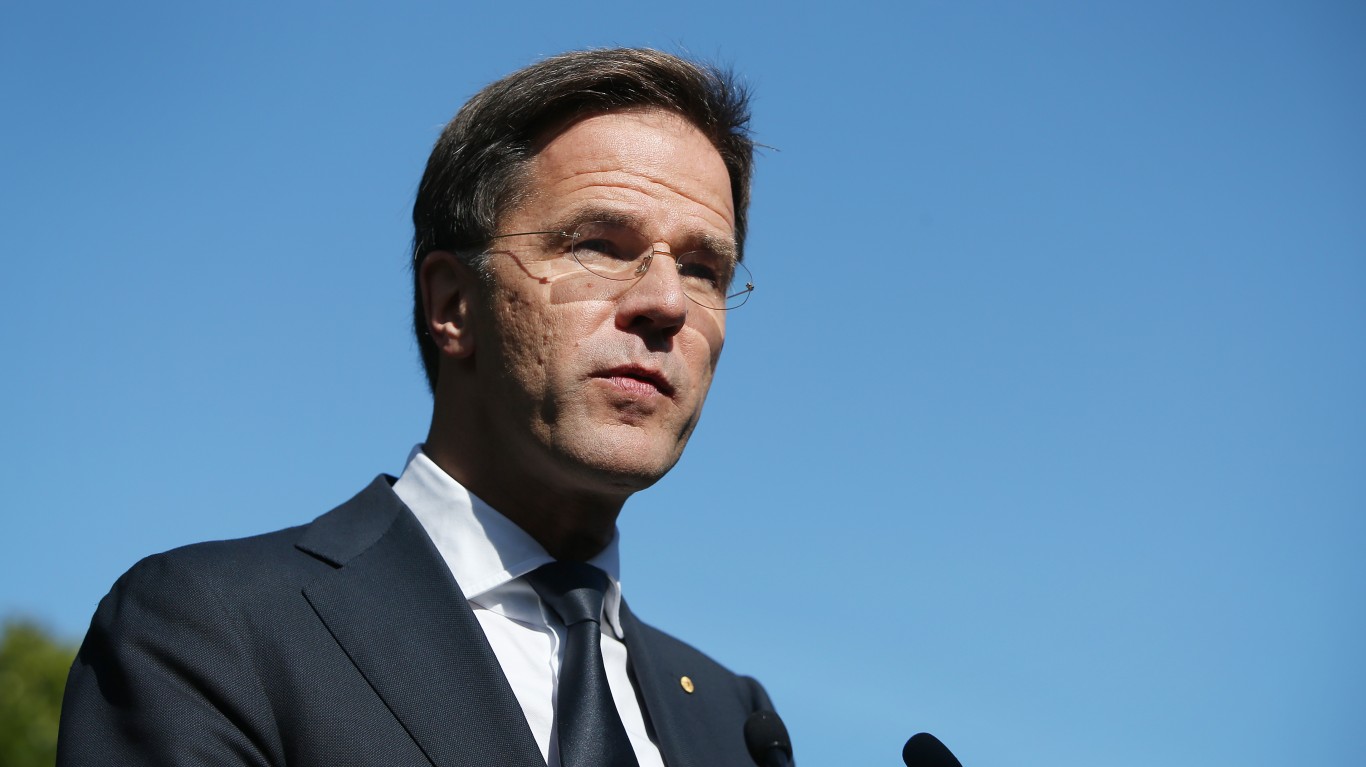
6. Mark Rutte
> Country: Netherlands
> Net approval: -40%
> Approve: 27%
> Disapprove: 67%
> Population: 17,533,405
Public trust in the Dutch government plummeted from an all time high of 70% in April 2020 to a dismal 30% by September 2021 due to perceptions of how the COVID-19 pandemic was handled, according to a study by Erasmus University of Rotterdam, three main municipalities in the Netherlands, and the research group Kieskompas. Rutte’s approval rating may be low, but it did not stop the 55-year-old member of the center-right People’s Party for Freedom and Democracy from winning reelection in August to become the longest-running Dutch prime minister.
[in-text-ad]
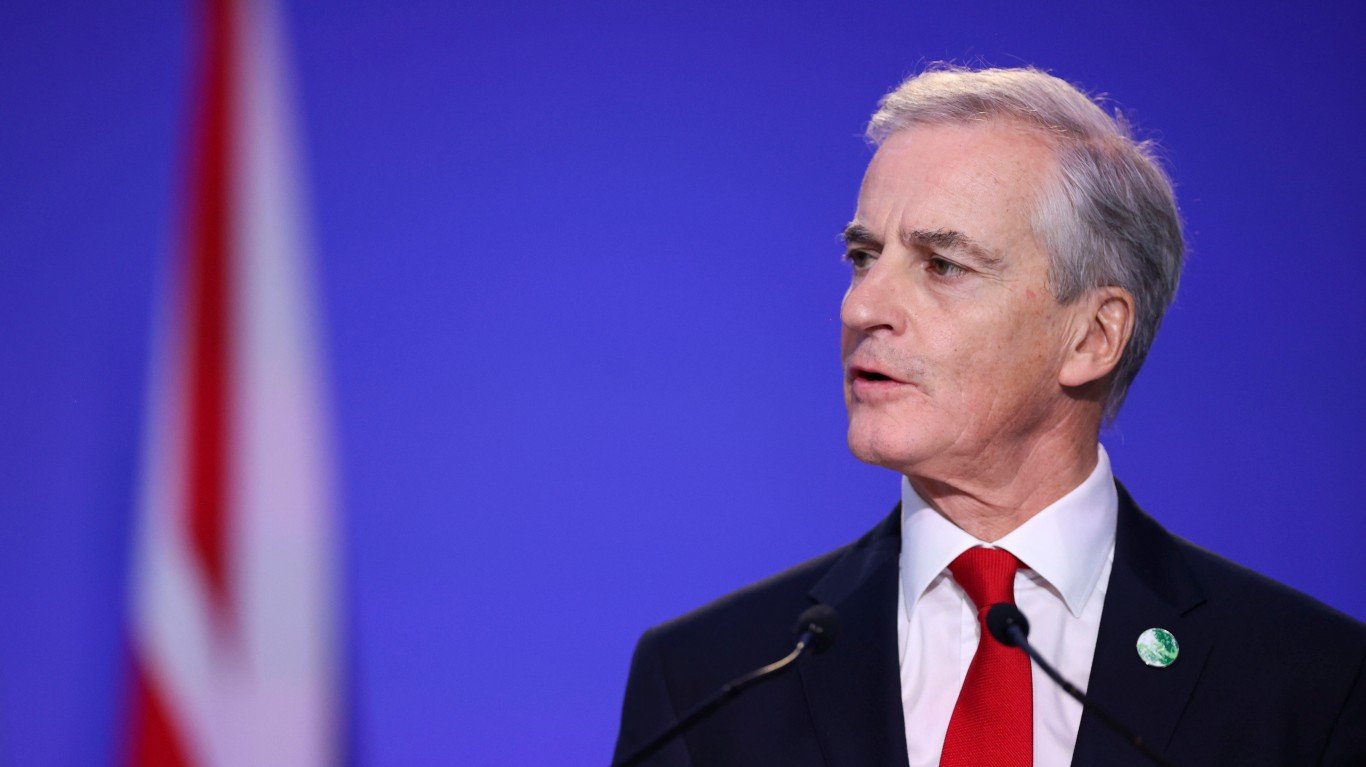
5. Jonas Gahr Støre
> Country: Norway
> Net approval: -41%
> Approve: 26%
> Disapprove: 67%
> Population: 5,408,320
Prime Minister Jonas Gahr Støre of Norway has been grappling with low approval ratings for himself and his center-left Labor Party. Soaring electricity costs is one big issue, but local commentators suggest there is also a leadership problem because the Center Party, an agrarian political organization that is part of Støre‘s coalition party, is also facing poor approval ratings as approval has increased for rival conservatives. Støre, 62, became Norway’s prime minister in October 2021.
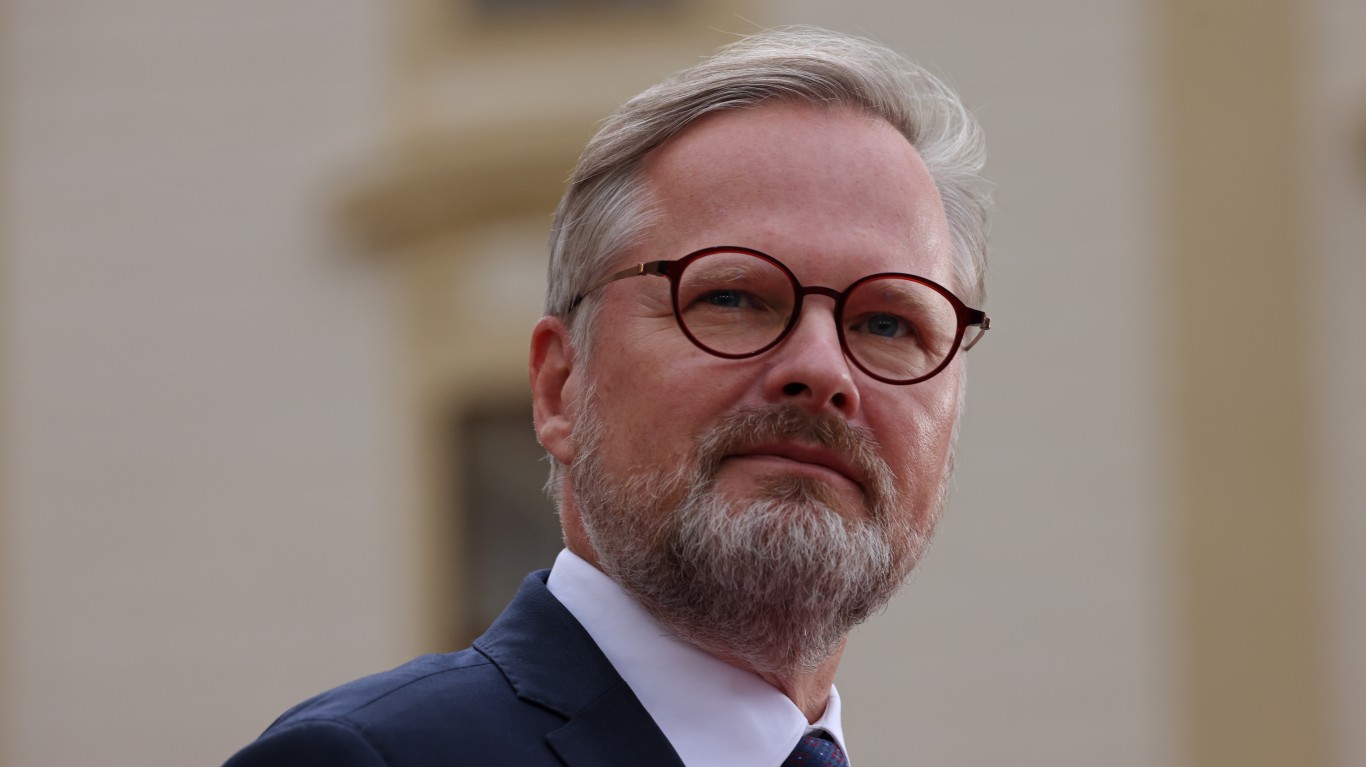
4. Petr Fiala
> Country: Czech Republic
> Net approval: -42%
> Approve: 25%
> Disapprove: 67%
> Population: 10,703,446
During his first New Year’s Day Speech in January, Prime Minister Petr Fiala warned that 2022 would be the most challenging year since the formation of the Czech Republic in 1993. He pointed to problems caused by inflation (he singled out rising energy prices) and the impact of the COVID-19 pandemic. He also warned about populists taking advantage of the situation to offer easy but untenable solutions. Fiala, 58, is member of the liberal-conservative Civic Democratic Party. He assumed office in November 2021.
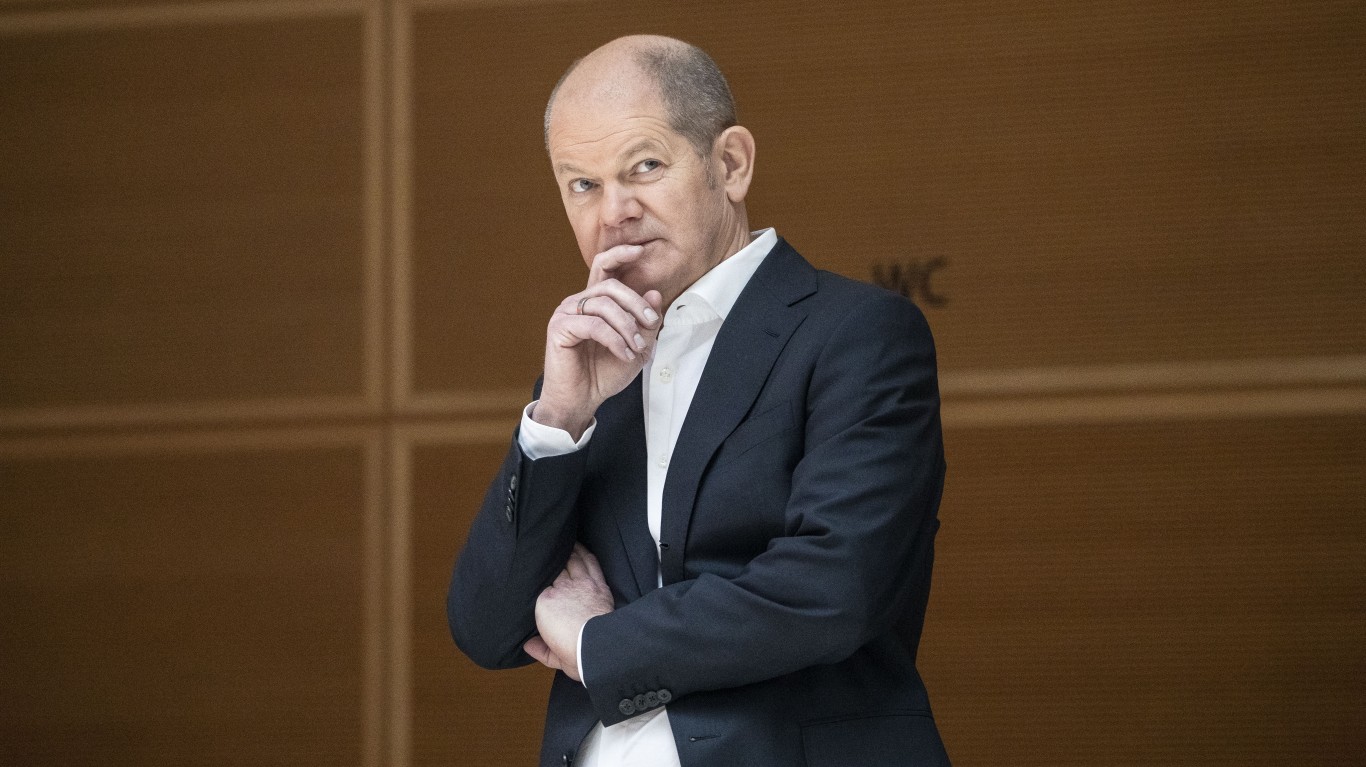
3. Olaf Scholz
> Country: Germany
> Net approval: -42%
> Approve: 26%
> Disapprove: 68%
> Population: 83,129,285
A Bild newspaper survey on Aug. 21 showed German Chancellor Olaf Scholz’s approval rating in the ditch at just 25%. This dismal score was attributed by local commentators to a German economy on the brink of recession due to soaring inflation. Scholz, 64, is a member of the center-left Social Democratic Party of Germany, and he became German chancellor in December 2021. He served as vice chancellor under Angela Merkel, the first woman to hold the position and the second-longest-serving German head of government.
[in-text-ad-2]
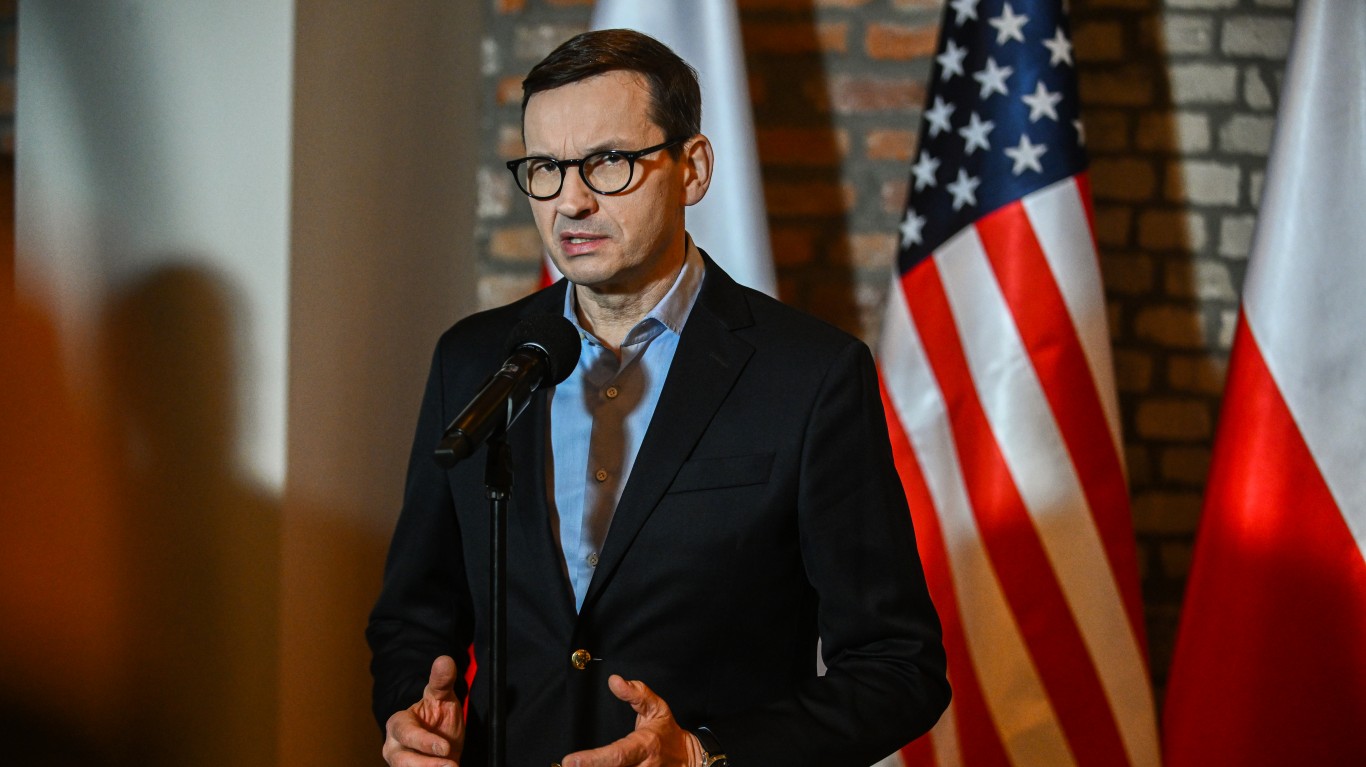
2. Mateusz Morawiecki
> Country: Poland
> Net approval: -43%
> Approve: 24%
> Disapprove: 67%
> Population: 37,781,024
Prime Minister Mateusz Morawiecki’s approval rating is not much better than it was in a June survey by public opinion group Kantar that found only 28% of respondents approved of his leadership. Poland’s annualized inflation rate hit 15.7% in September, one of the highest among European Union member states. Morawiecki, 64, became Poland’s premiere in December 2017. The former deputy prime minister and minister of finance is a member of the right-wing Law and Justice Party.
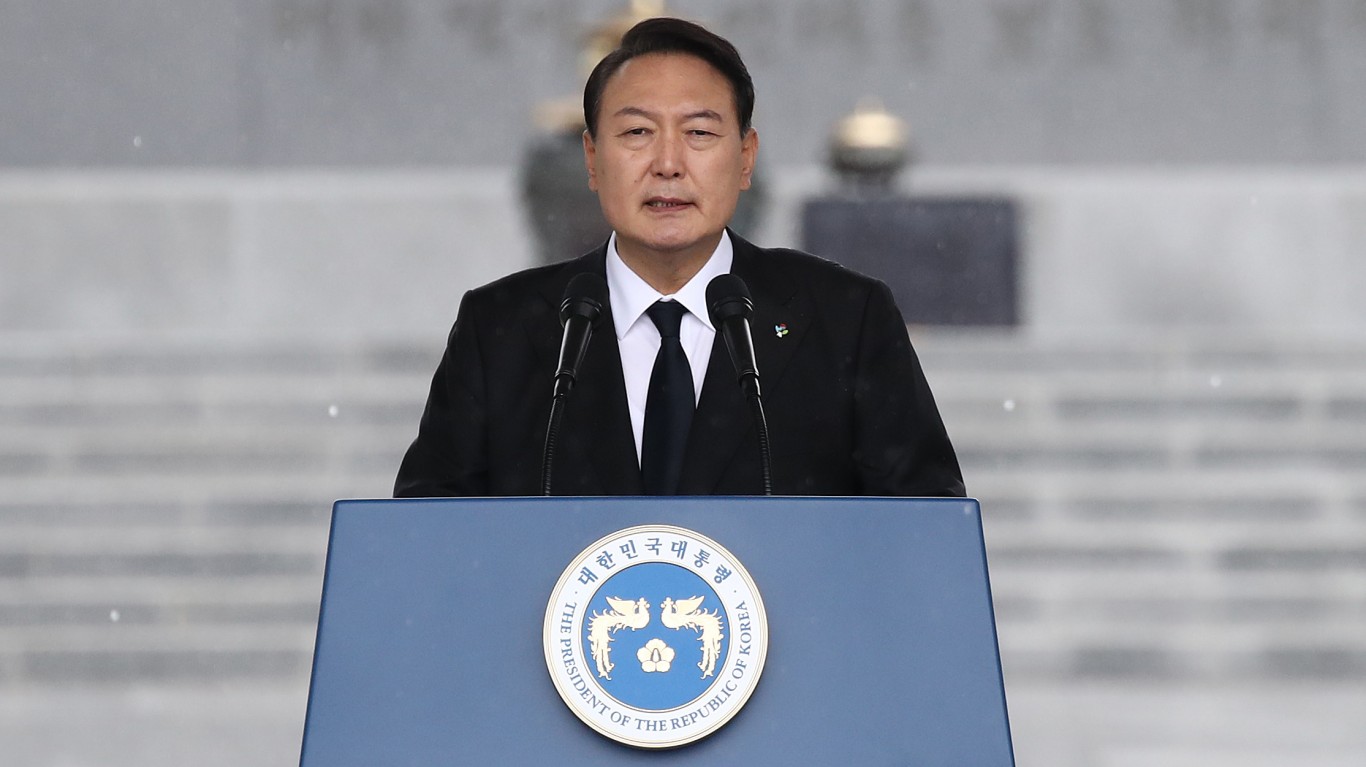
1. Yoon Suk-yeol
> Country: South Korea
> Net approval: -57%
> Approve: 19%
> Disapprove: 75%
> Population: 51,744,876
Like elsewhere, South Koreans have been facing economic pressure from rising prices, but their disapproval of President Yoon Suk-yeol is related to other matters, too. One reason is that he is an outsider with no established allies in government who barely won election on March 9. He has also made a few unpopular decisions, including snubbing U.S. House Speaker Nancy Pelosi during her tour of Asia, seen as a preferential gesture toward China, which firmly protested Pelosi’s visit to Taiwan in August. Yoon, 61, is a member of the conservative People Power Party.
Methodology
To identify the most disliked leaders in the world, 24/7 Wall St. reviewed the recent weekly survey on global leader approval ratings from polling organization Morning Consult, which collects survey data in 22 countries. Only the 14 leaders with negative net approval ratings are ranked here.
The latest approval ratings are based on data collected from Oct. 19-25, 2022. Approval ratings are based on a seven-day moving average of adult residents in each country, with sample sizes varying by country. Total 2021 population figures come from the World Bank World Development Indicators.
Sponsored: Want to Retire Early? Here’s a Great First Step
Want retirement to come a few years earlier than you’d planned? Or are you ready to retire now, but want an extra set of eyes on your finances?
Now you can speak with up to 3 financial experts in your area for FREE. By simply clicking here you can begin to match with financial professionals who can help you build your plan to retire early. And the best part? The first conversation with them is free.
Click here to match with up to 3 financial pros who would be excited to help you make financial decisions.
Thank you for reading! Have some feedback for us?
Contact the 24/7 Wall St. editorial team.
 24/7 Wall St.
24/7 Wall St. 24/7 Wall St.
24/7 Wall St. 24/7 Wall St.
24/7 Wall St.

